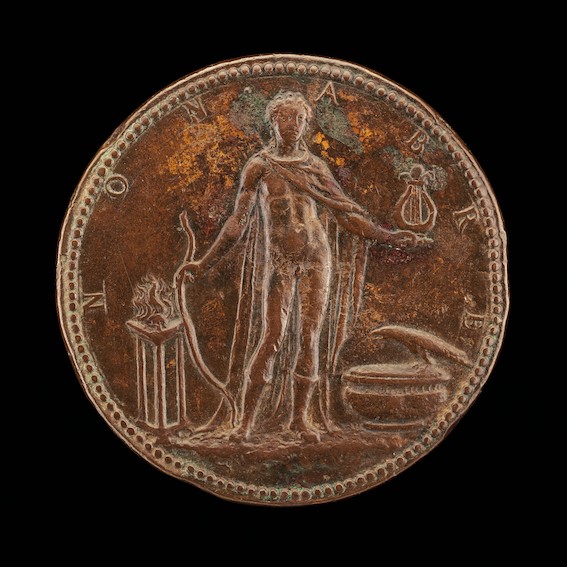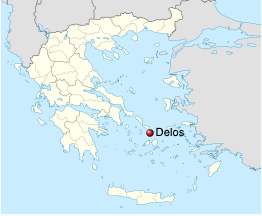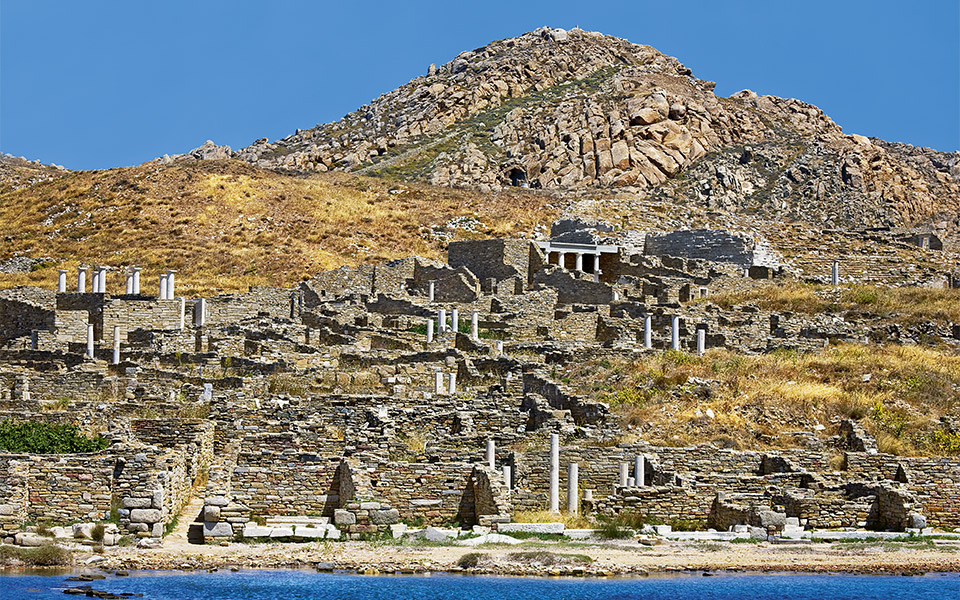
Have you heard it declared that no-one would make up a story about Jesus coming from such a nothing-back-of-the-woods place as Nazareth? No, no, the argument goes — if anyone were to make up a story about Jesus they would have impressed their readers by having him hail from some place of renown.
I don’t recall off-hand what led me into reading an obscure French work from 1927 about Pythagoras, but that work in turn led me to once again pick up the Homeric Hymns of all things. This time a light flashed above my head: I found myself confusing the goddess Leto with Mary urgently looking for a place to give birth to her child and finding nowhere … except a humble stable! And Nazareth — how could a messiah possibly come from Nazareth?
“Nazareth! Can anything good come from there?” Nathanael asked. — John 1:46
Now before you roll your eyes a second time let me explain. I am NOT saying that the story of Jesus’s humble origins are a direct, intertextual creation inspired or shaped by the Homeric Hymn to Apollo. What I am saying is that the idea of a great divinity having a very humble earthly beginning was a motif, a trope, a concept, an idea that was part of the cache of ancient Greco-Roman culture. (A quick persusal of some chapters in The Reception of the Homeric Hymns did persuade me, though, that the hymns were certainly part of the collective knowledge of literate persons in the first and second centuries of this era.)
Let’s have a look at the passage of interest in Hymn 3, to Apollo, as translated by Michael Crudden.
The hymns begins with a picture of all gods on Olympus rising up in awe when the great Apollo enters, all except for his father and mother, Zeus and Leto.

Next, Leto is called the blessed one for having given birth to such a mighty son. Apollo is called a “joy for mortals”. The poet ponders where to begin his tale and decides to sing of the time of Apollo’s birth on the island of Delos.
The time came for Leto to give birth and we read of her traveling a great distance to find the appropriate place, at least a welcoming one. She traversed populous Crete, and the countryside of Athens, and Aigina’s isle . . . .
And, famed for its ships, Euboia; Aigai, Eiresiai too,
And, near to the sea, Peparethos; Athos the Thracian height,
And the topmost peaks of Pelion; Samos the Thracian isle,
And the shadowy mountains of Ida; Skyros, Phokaia too,
The precipitous mount of Autokane; Imbros the firm-founded isle,
And mist-enshrouded Lemnos; holy Lesbos—the seat
Of Makar, Aiolos’ son—and Khios that lies in the sea,
Sleekest of isles; rugged Mimas, and Korykos’ topmost peaks;
Dazzling Klaros too, and sheer Aisagea mount;
Samos with plentiful waters, precipitous Mykale’s peaks;
Miletos, Kos—the city where dwell the Meropes folk —
Precipitous Knidos too, and Karpathos swept by the wind;
Naxos, and also Paros, and rocky Rhenaia tooOver so great a distance in labour with him who shoots
From afar [Apollo was an archer] went Leto, seeking whether amongst these lands
There was any that would be willing to furnish her son with a home.
But there was no room at the inn….
But they trembled much in fear, and not one dared, despite
Her rich soil, to welcome Phoibos [a name for Apollo], until queenly Leto set foot
Upon Delos
The rich and famous chose not to welcome Leto and her son-to-be.

Leto plaintively asked Delos….
and, questioning her, gave voice to winged words:
‘Delos, would you be willing to be the seat of my son,
Of Phoibos Apollo, and furnish him with a rich shrine on your ground?’
But how did Delos compare with all the above that Leto had just passed through? Leto said to Delos,
you’ll not, I think, abound in cattle or flocks, nor will you bear corn or grow an abundance of trees.
And Delos knew it well enough and said in reply:
‘Most glorious Leto, daughter of mighty Koios, I would
With pleasure welcome the birth of the lord who shoots from afar,
For in truth in men’s ears I am of dreadfully grim repute,
But in this way might gain great honour.
Delos’s inferiority complex over her stony, barren appearance got the upper hand, though, so she poured out her fear:
. . . . this dreadful fear
Pervades my mind and heart, that, when [Apollo] first sees the Sun’s light,
Holding the isle in dishonour—since stony indeed is my ground—
He may with his feet overturn me and thrust me under the sea.
There always great waves without ceasing over my head will break,
While he will reach some land that is pleasing to him . . .
. . . But the many-footed beasts
And black seals will make their lairs upon me, homes that will be
Secure for lack of people.
Fear not, Leto reassured Delos. First, with the promise that Delos would become the most famed central sanctuary in all of the Greek world and beyond:
. . . But if you possess a shrine
Of Apollo who works from afar, all humans, assembling here,
Will bring you their hecatombs: vast beyond telling the steam of fat
Will always be shooting upward, and those who possess you you’ll feed
From a foreigner’s hand, since there is no richness beneath your soil.’
And finally with an oath declared that Delos would have honour above all other isles.
‘Now let the Earth know this, and also broad Heaven above,
And the down-dripping water of Styx, which is the blessed gods’
Greatest and most dread oath: here Phoibos will always have
His fragrant altar and precinct, and will honour you above all.’
Isodore Levy, author of that book on the influence of the legend of Pythagoras in the Greek and Jewish worlds, was drawing quite different links with the gospels, between Apollo and Jesus. But they can wait for another post. I found the above of most interest for now. Never again will I allow anyone to get away with trying to say that Jesus really did have to come from Nazareth because no-one would make up a story about a god-man (or a figure near enough) coming from some place of no reputation.
Crudden, Michael. The Homeric Hymns. Oxford ; New York: Oxford University Press, 2001.
